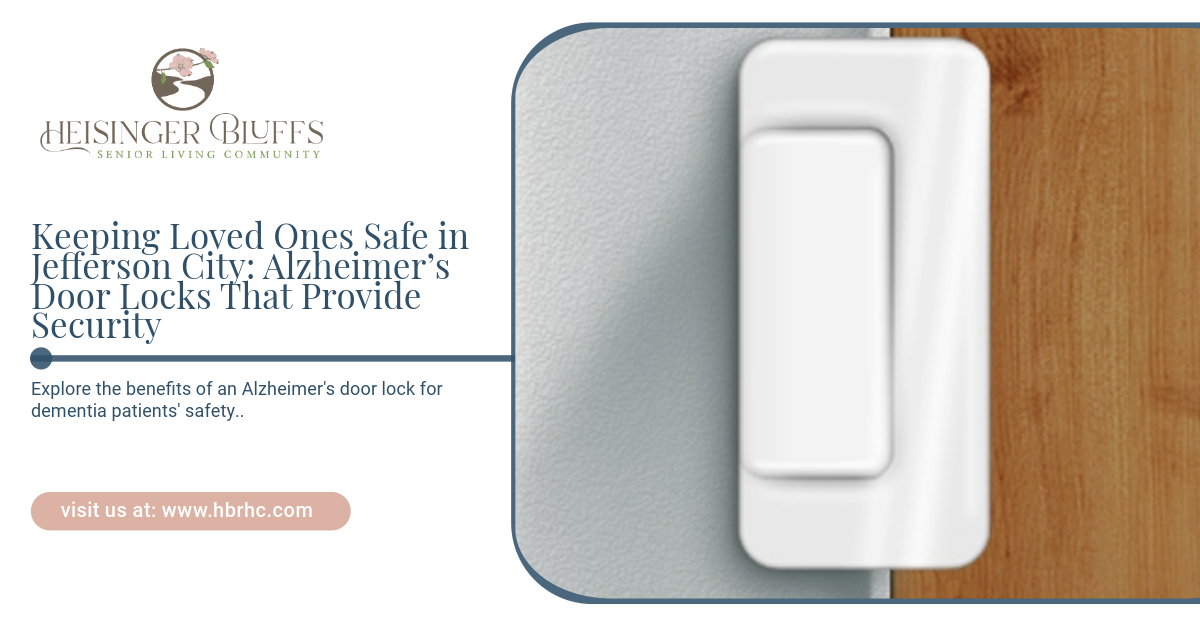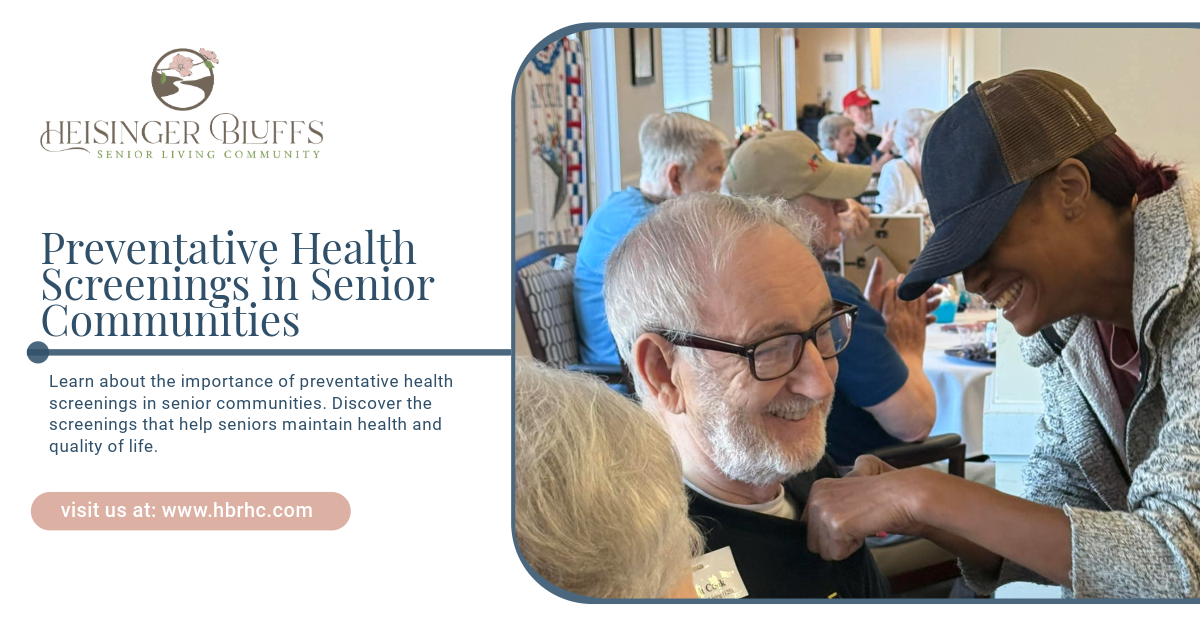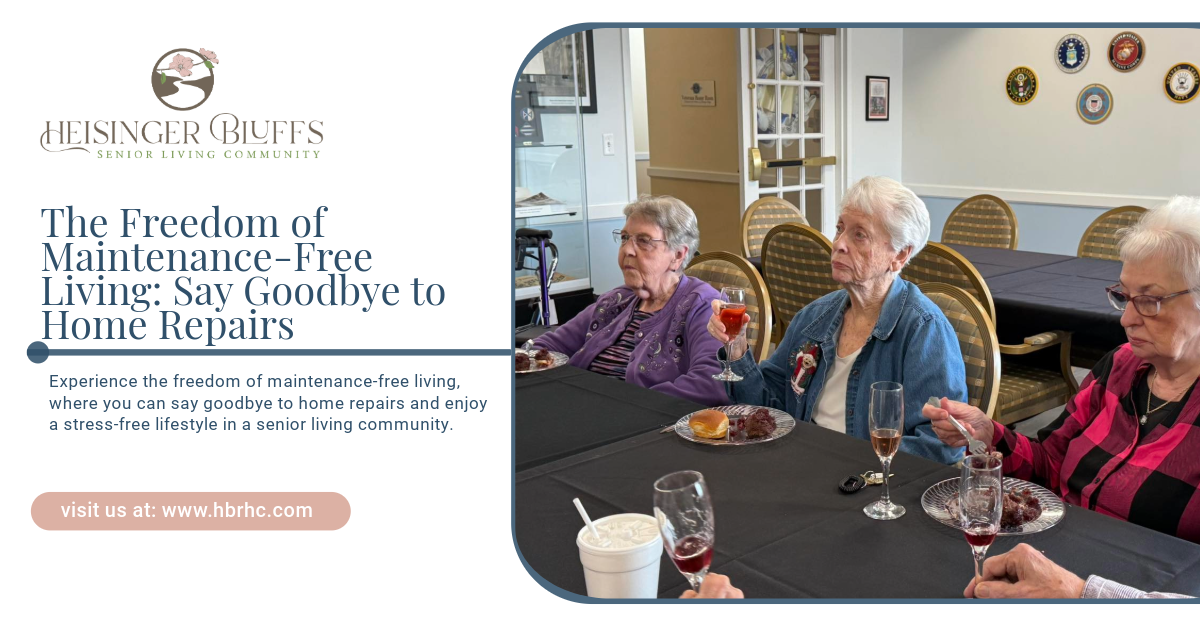Keeping Loved Ones Safe in Jefferson City: Alzheimer’s Door Locks That Provide Security

Caring for a loved one with Alzheimer’s disease presents unique challenges, particularly regarding safety and security within the home. One of the most pressing concerns for caregivers is preventing wandering, a common behavior among individuals with Alzheimer’s. This blog will explore effective door lock solutions designed to enhance security for your loved ones while promoting their independence and dignity.
Understanding Alzheimer’s and Its Impact
Alzheimer’s disease is a progressive neurological condition that affects memory, thinking, and behavior. As the disease advances, individuals may experience confusion, disorientation, and a decreased ability to recognize familiar surroundings. These symptoms can lead to wandering, where individuals may attempt to leave home in search of familiar places or people. This wandering can pose significant safety risks, including getting lost or encountering hazardous situations.
Why Door Security Matters
Securing doors is crucial for several reasons:
- Preventing Wandering: Effective locks can help prevent individuals from leaving the home unsupervised, reducing the risk of getting lost.
- Providing Peace of Mind: Caregivers can feel more at ease knowing that their loved one is secure within the home.
- Promoting Independence: While security is essential, it’s also vital to allow individuals the freedom to move around safely in their living spaces.
Choosing the right door locks is an essential step in creating a safe environment for those with Alzheimer’s.
Types of Door Locks for Alzheimer’s Patients
When selecting door locks for Alzheimer’s patients, it's crucial to consider usability, security, and the potential for emergencies. Here are some types of locks that provide effective solutions:
1. Keyed Deadbolts
Keyed deadbolts provide a robust locking mechanism that requires a key to open from the outside. This type of lock is ideal for exterior doors.
- Pros: High security; difficult for individuals with Alzheimer’s to open without assistance.
- Cons: Caregivers must keep track of keys and may need to assist individuals when entering or leaving.
2. Smart Locks
Smart locks allow you to control access via a smartphone app or keycode. Some models have features like geofencing, which can automatically lock or unlock the door based on your location.
- Pros: Remote control and monitoring; no need for physical keys; can provide notifications of door activity.
- Cons: May require a Wi-Fi connection; potential technical issues; caregivers must be tech-savvy to operate.
3. Electronic Keypad Locks
Electronic keypad locks require a numeric code to unlock the door. These locks can be programmed with multiple codes, allowing caregivers to grant access to trusted individuals.
- Pros: No physical keys needed; codes can be changed easily; eliminates the risk of losing keys.
- Cons: Individuals with Alzheimer’s may forget the code; caregivers must monitor and manage codes regularly.
4. Sliding Door Locks
Sliding door locks are designed for sliding glass doors or patio doors. They can provide added security and are typically easier for caregivers to operate than standard locks.
- Pros: Provides a secure option for sliding doors; often easy to install; no complex mechanisms.
- Cons: May not be as secure as deadbolts; individuals with Alzheimer’s may still find ways to manipulate them.
5. Chain Locks
Chain locks are additional security measures that can be installed on doors. They allow caregivers to open the door partially while still securing it.
- Pros: Easy to install; provides a visual check before fully opening the door.
- Cons: Not entirely secure on their own; may be manipulated by determined individuals.
6. Lever Handle Locks
Lever handle locks can be easier for individuals with Alzheimer’s to operate than traditional knobs. They can also be equipped with a locking mechanism for added security.
- Pros: Easier to use for those with limited dexterity; available with locking features.
- Cons: May not be as secure as keyed locks; individuals could accidentally leave the door unlocked.
Features to Consider When Choosing Door Locks
When selecting door locks for Alzheimer’s patients, consider the following features:
1. Ease of Use
The lock should be simple for caregivers to operate while presenting a challenge for individuals with cognitive impairments. Choose locks that are intuitive and easy to use.
2. Emergency Access
Consider locks that provide quick access in case of an emergency. For example, keyed deadbolts and electronic locks with backup keys can help ensure caregivers can enter swiftly if needed.
3. Visual Cues
Some locks offer visual cues to indicate whether the door is locked or unlocked. This feature can help caregivers quickly check the status of the door.
4. Durability
Ensure that the locks are durable and can withstand daily use. High-quality materials are essential for maintaining security over time.
5. Compatibility with Home Design
Consider how the lock will fit with your home’s design and whether it is compatible with existing doors. Some locks may require modifications or installation.
Additional Safety Measures for Home Security
In addition to installing appropriate door locks, consider implementing these additional safety measures to enhance security for individuals with Alzheimer’s:
1. Install Alarm Systems
Alarm systems can provide an extra layer of security. Choose systems that alert caregivers when doors are opened or when individuals wander outside designated areas.
2. Use Motion Sensors
Motion sensors can notify caregivers when movement is detected in certain areas of the home. This can help monitor activity and prevent wandering.
3. Create a Safe Environment
Reduce hazards around the home, such as removing obstacles and ensuring that lighting is adequate. A safe environment can help prevent accidents.
4. Develop a Routine
Establishing a daily routine can provide structure for individuals with Alzheimer’s and reduce anxiety. Consistent schedules can help minimize confusion and wandering.
5. Educate Caregivers and Family Members
Ensure that everyone involved in caregiving understands the security measures in place and knows how to use them effectively. Communication is vital for maintaining a safe environment.
Resources for Alzheimer’s Caregivers in Jefferson City
Finding support and resources can significantly aid caregivers in managing the challenges of Alzheimer’s care. Here are some local resources in Jefferson City:
- Alzheimer’s Association: Provides information, support groups, and educational resources for families affected by Alzheimer’s.
- Local Senior Centers: Offer programs, social activities, and resources for seniors and their caregivers.
- Home Health Services: Consider in-home assistance for additional support and respite for caregivers.
- Community Workshops: Look for workshops focused on Alzheimer’s care, safety tips, and caregiver support within your community.
Conclusion
Keeping loved ones safe in Jefferson City with Alzheimer’s requires careful planning and the right tools, including effective door locks. By selecting appropriate locks and implementing additional safety measures, caregivers can create a secure and supportive environment that fosters independence while ensuring safety.
If you are seeking additional resources or support for Alzheimer’s care, consider reaching out to Heisinger Bluffs, where we are dedicated to enhancing the quality of life for seniors and their families.











